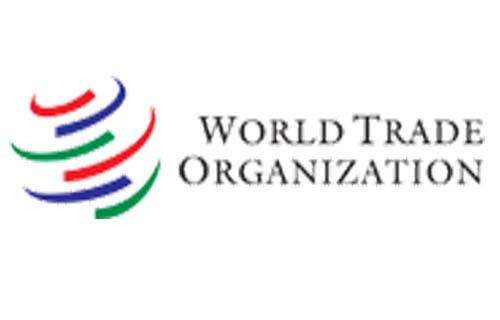Govt urged to play constructive role in WTO ministerial conference
Kathmandu, November 28
Experts have advised the Ministry of Commerce (MoC) to play a constructive role to expedite the remaining negotiations under the Doha Development Round and cautiously look into the new issues going to be taken up at the 11th Ministerial Conference of the World Trade Organisation (WTO) scheduled to be held in Buenos Aires of Argentina on December 10-13.
Posh Raj Pandey, a senior economist and specialist on trade issues, has said that the acceleration of remaining negotiations under the Doha Development Round should be given due priority during the ministerial conference. The WTO Meeting in Doha, Qatar, in 2001 had introduced a raft of issues for negotiations but a very few of the negotiations have been concluded so far and the ministerial meeting — highest decision-making body of the multilateral trade regime — has been stuck with the negotiations in the following meetings and has delivered only a few till date.
During the negotiations, Nepal should be defensive on policy space for industrial and agricultural development, implantation capacity of the country on issues that are brought for negotiations and also look at its aspirations to graduate to the league of developing countries by 2022, according to Pandey. “The aforementioned issues could adversely affect Nepal as it desires to revert from the deindustrialisation era. On the other hand, the facilities promised by the developed countries to least developed countries will be cut after a certain number of years after the country graduates to the league of developing nations.”
Economist Pushkar Bajracharya has said that the inconclusive negotiations of Doha Round have held back the multilateral trading regime from providing favourable treatment to the least developed countries (LDCs) and the developed economies have reaped advantage of this.
“Though the developed countries have promised ‘duty-free, quota-free’ market access, LDCs have hardly made use of this facility because the products of LDCs are not able to access the market of the developed countries due to the non-tariff measures that are set to protect their domestic industries,” said Bajracharya.
Citing an inconclusive negotiation under Doha Round on agriculture and fisheries, among others, economist Bajracharya said that the LDCs should stand for improved market access in developed countries for a certain number of years so that they can develop sustainable production base and sustain economic growth.
Speaking in a programme organised by the Ministry of Commerce, Senior Vice-president of the Federation of Nepalese Chambers of Commerce and Industry (FNCCI), Shekhar Golchha, said that Nepali industries surviving in the duty protection regime have been hit hard along with our promise to bring down the tariff rate gradually along with preference erosion, digital divide, domestic hassles like power cuts, labour unrest, political instability and policy unpredictability in the following years since Nepal’s accession in WTO.
As a result, we are termed ‘import-driven’ economy and are losing our domestic production base, he stated. Golchha said that the way Nepal is moving ahead is not sustainable, adding that the country must create an enabling environment for industrialisation to develop a robust production base in the country.
During the ministerial meeting in Buenos Aires, a few new topics will be under discussion for negotiations. They are related with regulating electronic commerce popularly known as e-commerce, integrating micro small medium enterprise into the global trade (the element and ways will be finalised during the negotiations), implementation of trade in services and investment promotion, according to Commerce Secretary Chandra Kumar Ghimire.






